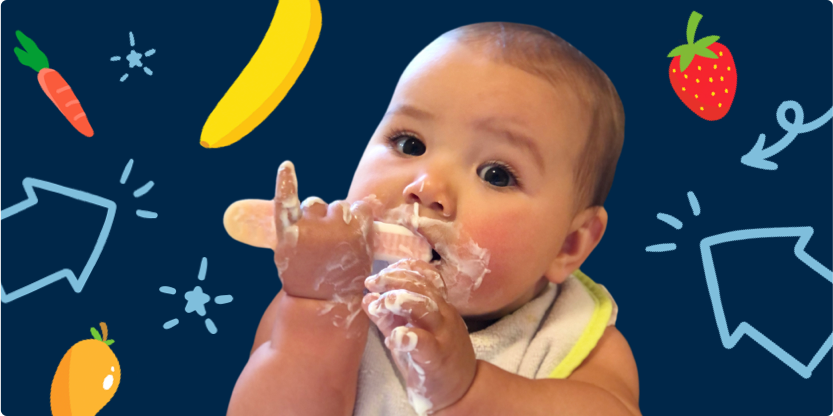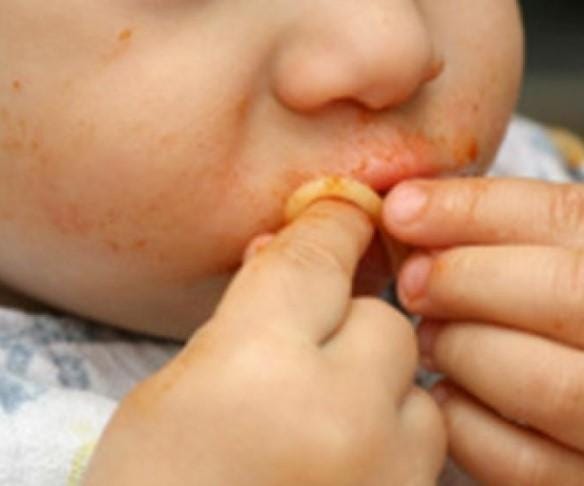Make every bite count
We've all been there—your tot is curious about something you're eating like salty snacks, chips and soda, so you give them some. Make sure these foods are only the once-in-a-while treats they are meant to be. Your child's meals and snacks should focus on fruits, veggies, whole grains, protein and dairy as the habits they make now can stick, so it's important to create healthy ones.
Limit the juice
If you choose to offer juice, wait until after the first birthday and provide it in a cup, not a bottle. Limit to 4 oz a day no matter what. 100% juice can count towards one fruit serving per day, but make sure your child's other fruit servings are from whole fruits, developmentally appropriate, of course. Offer 100% juice rather than juice drinks or ades, which may contain added sweeteners.
Skip the cow's milk until they're one year old
When it comes to the first year of life, the American Academy of Pediatrics (AAP) recommends that infants be fed breastmilk or iron-fortified baby formula to make sure they're getting the iron and nutrients they need. After your baby is one year old, you can introduce whole cow’s milk. Because little ones need the extra fat in whole milk for their growing bodies, reduced-fat and fat-free milk is not usually recommended until age 2. However in some cases, lower fat dairy may be necessary so be sure to check with your pediatrician to see what is right for your child.
Honey dearest, wait on that honey
Unfortunately, honey can contain botulinum spores and cause serious health problems. Even in small amounts, honey can be dangerous for a baby younger than 12 months, so don't give your child honey until they are older.
Tips to prevent choking
You might think they're ready to handle more, but do not give your baby foods that are known choking hazards until at least age 4 or older.
Some foods that may be choking hazards:
- Raisins and whole grapes.
- Popcorn, nuts and seeds.
- Hot dogs, chunks of meat or poultry.
- Spoonfuls of peanut butter.
- Hard and raw fruits and vegetables including raw carrots and apples with skin.
- Gum, chewy or hard candy.







